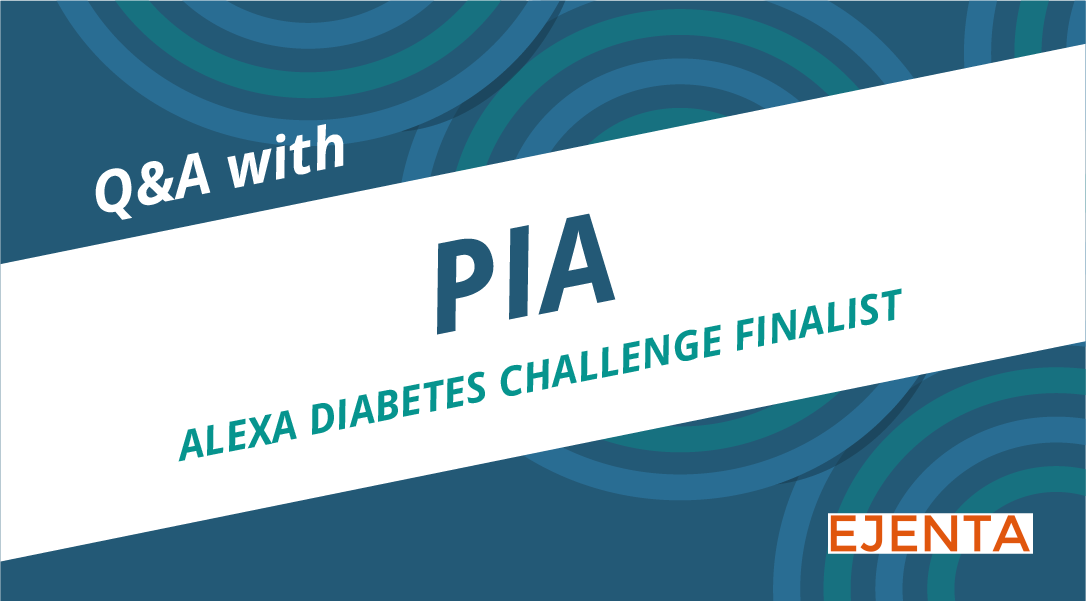
This is the third post in our “5 Teams Changing Diabetes Management” series, featuring Q&A with the Alexa Diabetes Challenge Finalists. These concepts demonstrate the vast potential for voice-enabled solutions to improve life for those with type 2 diabetes.
Our third post features a Q&A with Rachna Dhamija, Founder and CEO of Ejenta. Her team developed PIA: Personal intelligent agents for type 2 diabetes, a connected care intelligent agent that uses NASA-licensed AI technology integrated with IoT device data to encourage healthy habits, detect at-risk behaviors and abnormalities, and alert care teams.
What inspired you to create this voice-enabled solution?
The vision for our company began when the founders faced challenges in caring for our parents and children with diabetes. We started the company to take intelligent agent technology developed at NASA and apply it to caring for our own families.
We believe that voice powered intelligent agents will become the primary user interface for interacting with the digital and physical world. Soon we will all be able to speak to our own personal intelligent agents that will continuously learn about us and predict our needs. Intelligent agents have a great potential to empower people with diabetes to change habits and improve engagement in self care. Through voice, we can reach people at a more personal level, and we can also bring digital health tools to a wider population, including the elderly and the vision impaired.
Describe your first experience with voice technology. What aspect of it did you find most compelling?
Our CTO, Maarten Sierhuis, has been working on intelligent agents and voice interfaces for almost two decades, starting with his work at NASA, where he built voice-based intelligent agents for astronauts. Voice interfaces are compelling for astronauts, since it is really hard to use a keyboard, mouse or touch screen when you are wearing a spacesuit! Maarten developed a conversational intelligent agent that could give advice to astronauts in conditions where they could not communicate with their care teams on Earth. For example, the astronaut could ask the agent what he should be doing, and the agent would respond with a recommendation based on the health and environmental data that the agent was monitoring and its knowledge of the extravehicular plan. We’re now applying this technology and lessons learned to help people with chronic conditions on Earth.
How will your concept help people living with type 2 diabetes?
Ejenta is developing a voice powered intelligent personal agent that learns from patient generated data and delivers specific, targeted real-time recommendations to improve the person’s diabetes management and overall health. Our approach is innovative in that patients and each person on the care team receives their own personal intelligent agent.
Patients can interact in an engaging and natural way via natural language to ask questions about their health and to receive highly personalized advice based on their own data and care plan. Using the unique features of the Echo and Echo Show, patients can create a closely connected team with their caregivers, so they can receive support and encouragement when it is needed most, even when they are geographically far away. In this way, the entire care team is supported by intelligent agents, allowing the patient and care team to always remain connected and in the loop.
